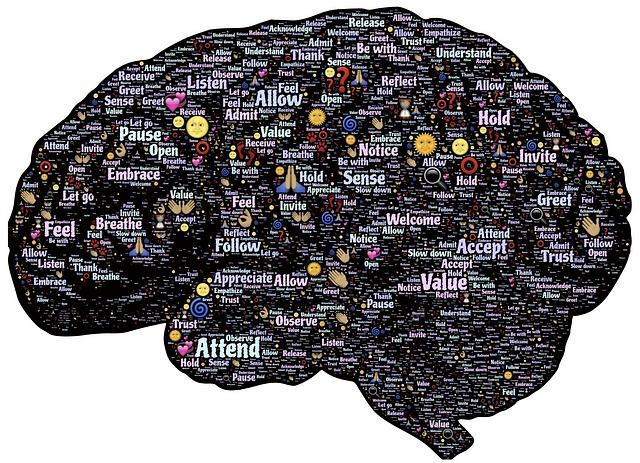What is Mindset Training?
Mindset training is a powerful method to train one’s habits of the mind. Mindset may be defined as a way of thinking, set of assumptions, or attitudes. Habits of mindset and thinking can help determine performance. An athlete who has the mindset that she can perform well will usually perform well. She will perform better than the teammate without that mindset.
Sometimes a specific mindset occurs within an entire group of people. This is called groupthink or a paradigm. An example of a paradigm is the notion the workweek should be forty hours. Mindset training seeks to overcome fixed patterns of thinking. We can break through these paradigms to consider different configurations. Work weeks can be thirty hours. People can work from home. Or people can work longer days with shorter weeks. Mindset training helps people consider new paradigms.
Developing Trusting Relationships
Mindsets also determine how we relate to other people. Mindsets and behaviors often go together. Many people have been raised with a negative mindset toward others. The mindset teaches that other people aren’t to be trusted and are hurtful. People with a trusting mindset are more open to new experiences and people. People without this mindset of trusting will have a harder time establishing relationships. A trusting mindset is translated into trusting behavior that makes friendship possible. A person with a trusting mindset will seek out other people and offer and ask for help. This trusting mindset thus leads to better relationships. Mindset training will benefit in developing relationships.
Great Performers
Great performers in all areas work on their mindset. In business, mindset and behavior are important. Business people must develop the mindset of success to move toward goals. Running a business is a huge endeavor. A business will not succeed without a leader’s positive mindset. Mindset training can help in developing leadership skills needed in the workplace. Business mindset and behavior for success requires a certain mindset. This mindset includes confidence in self and the business. People who have more trust in others and more confidence in themselves make better leaders. A leader with confidence in herself will take on the challenges of running a business. A leader with trust in others will delegate work as necessary. An example is a restaurant owner must have confidence in himself to initiate the business plan. The successful restaurant owner must also have confidence in the restaurant in order to promote it. He needs to trust his head chef to make decisions regarding the menu. Mindset training helps people become “great performers” in their areas.
Teamworking International is a leadership organization that uses such principles of mindset training of confidence and trust.
Growth Mindset Training
A growth mindset sees change as possible. A fixed mindset vs. a growth mindset is the focus. A growth mindset focuses on the possibility of positive change. A fixed mindset sees change as less possible. Many people see themselves as just “not good” at something, such as writing. This is a fixed mindset that doesn’t allow for growth. A person with a growth mindset may see herself as not good at writing now. But she also sees growth as possible. She believes she can become a good writer with practice. She may then study good writers and enroll in classes. She may talk to good writers. A person with a fixed mindset that he is simply “not good” at writing will not set goals to improve. Almost all growth involved the mindset. Without the mindset that growth is possible, people will not seek improvement.
Growth Mindset in Schools
A growth mindset for students is impactful. Students can begin to see themselves as capable with mindset training. Students with the growth mindset that they can improve outperform students without a growth mindset.
Many students struggle with math. Often these students have the mindset that they are not good at math. Math students exposed to growth mindset training begin to see themselves as capable. They are then able to perform well in math classes.
Growth mindset training and growth mindset professional development are available for teachers. Growth mindset workshops teach how to help develop a growth mindset in others.
Mindsets and Behaviors in School Counseling
Mindset training has been used to address aggressive behavior and crisis prevention in schools. This training was developed by Carol Dweck. Mindset training in schools goes beyond physical restraint and seclusion. These methods are traditionally used to address school violence.
Mindset training focuses on teaching alternatives to physical violence to its reference cases. Students are taught alternatives to violence in managing stress and anger.
Mindset behavior intervention training teaches other skills such as being proactive in addressing aggression. Crisis prevention training and events focus on building a trusting mindset with others. Trust counteracts the feeling of powerlessness that fuels aggression. If a trusting relationship is established between students and teachers, there is less likelihood of violence.
Avoiding power struggles is also emphasized.
Crisis intervention training certification is available to those who participate
Mindset Training Curriculum for Teachers and Counselors in Addressing Aggression
There are guiding principles in mindset training for teachers and counselors in dealing with aggression. A typical training program might address promoting choice and trust. Also addressed in mindset training are ways to ways to avoid power struggles. Being proactive rather than reactive is also important in training mindset. Present oneself as an ally and assess body language and what your body language projects. Being calm, aware, and respectful is part of a mindset program. Respect is earned and reciprocal. Model the respectful attitude you want from students. This, in turn, will contribute to a classroom environment respectful of other’s rights and feelings.
Creating a culture of prevention is the ultimate goal in a mindset training curriculum. Anticipate problems before they occur. Mindset training videos address many of the steps of mindsets and behavior training. Growth mindset professional development can give school counselors and teachers a strong understanding of mindset theory.
Mindset Activities for Kids
Mindset training for kids goes beyond simply giving encouragement.
Mindset activities for kids give them tools for success. Books, games, art and writing that focuses on solving problems develop a growth mindset. Readings that focus on characters overcoming challenges help create this mindset. Art that is open-ended focusing on experimentation over perfection also add to a growth mindset. Encouraging journal writing by giving quality writing tools and stationary also helps. Students can be taught to track their growth over time and noting progress.
Warrior Mindset Training
The warrior mindset applies to anyone involved in military or law enforcement professions. It also extends to others who want to learn self-defense. Warrior mindset training will include training past the level of comfort to improve. Warrior mindset training focuses on learning the following:
Commitment to move away from the threat if possible.
Awareness of the “battlefield,” the area surrounding the potential attack
Narrow the battlefield. Minimize points of attack. Use methods such as getting your back to a wall.
Develop a clear mental trigger. This is your individual trigger for acting. How close will you let the attacker get? How many times will you tell the address to drop his weapon before drawing your own?
Standards of operation and how to handle an attack. Rehearse how you will handle an attack before it happens.
Self-debriefing after the event and how improvement can be made.
Mindset Activities for Adults and 8 Brilliant Ways to Train Your Mind.
Many adults have a fixed mindset that they cannot change. There are ample ways adults can learn with a growth mindset. Continued learning is essential for mindset growth. Adults can set learning goals in a number of areas. Some of these areas might be in the language, fitness, music, or crafts.
The process of setting learning goals contributes to growth mindset and mindset training.
Past experience suggests there are eight ways adults can train their minds and develop a growth mindset through mindset training. Following are eight mindset training steps.
- Set the goal. This is a powerful first step. It is the “commitment” of the warrior mindset. Setting the goal might be the hardest part for adults. Adult lives are burdened with many competing desires and commitments. This is why simplifying is important. Less is more. Choose one goal at a time to the commitment to.
- Be focused on your goal. If your goal is to learn piano, set some time each day to practice piano. Don’t do anything else during that time. Multi-tasking doesn’t work well in mindset training. Focus is needed to train your mind.
- Develop a plan. Listing the steps you need toward achieving your goal is also essential. Consider the process you will need to go through to learn piano. These steps would include obtaining the piano, finding a teacher, setting a schedule to practice, etc.
- Research necessary tools. The warrior proceeding toward a target wouldn’t go without necessary supplies. Find out the supplies you will need for success. To learn piano well, you will need a piano, sheet music, a metronome, etc.
- Avail yourself of expertise. Finding a “master” to help you toward your goal is also essential. The piano instructor understands the learning process for piano. Finding a community of like-minded peers also helps.
- Push through frustration. No goal worth achieving is easy to achieve. Recognize difficult times and plateaus as a stage in the learning process. Keep on target toward your goal.
- Take a break. Time off may be needed when the work becomes very difficult. But never forget your goal.
- Celebrate success. Reward yourself for your accomplishments. Take a vacation, go to a party, go out to dinner after that first successful performance.
But then set a new goal. Never stop learning.
This powerful model of mindset training focuses the individual on positive change. Change and growth require focus on a specific goal. Less is more with mindset training.



